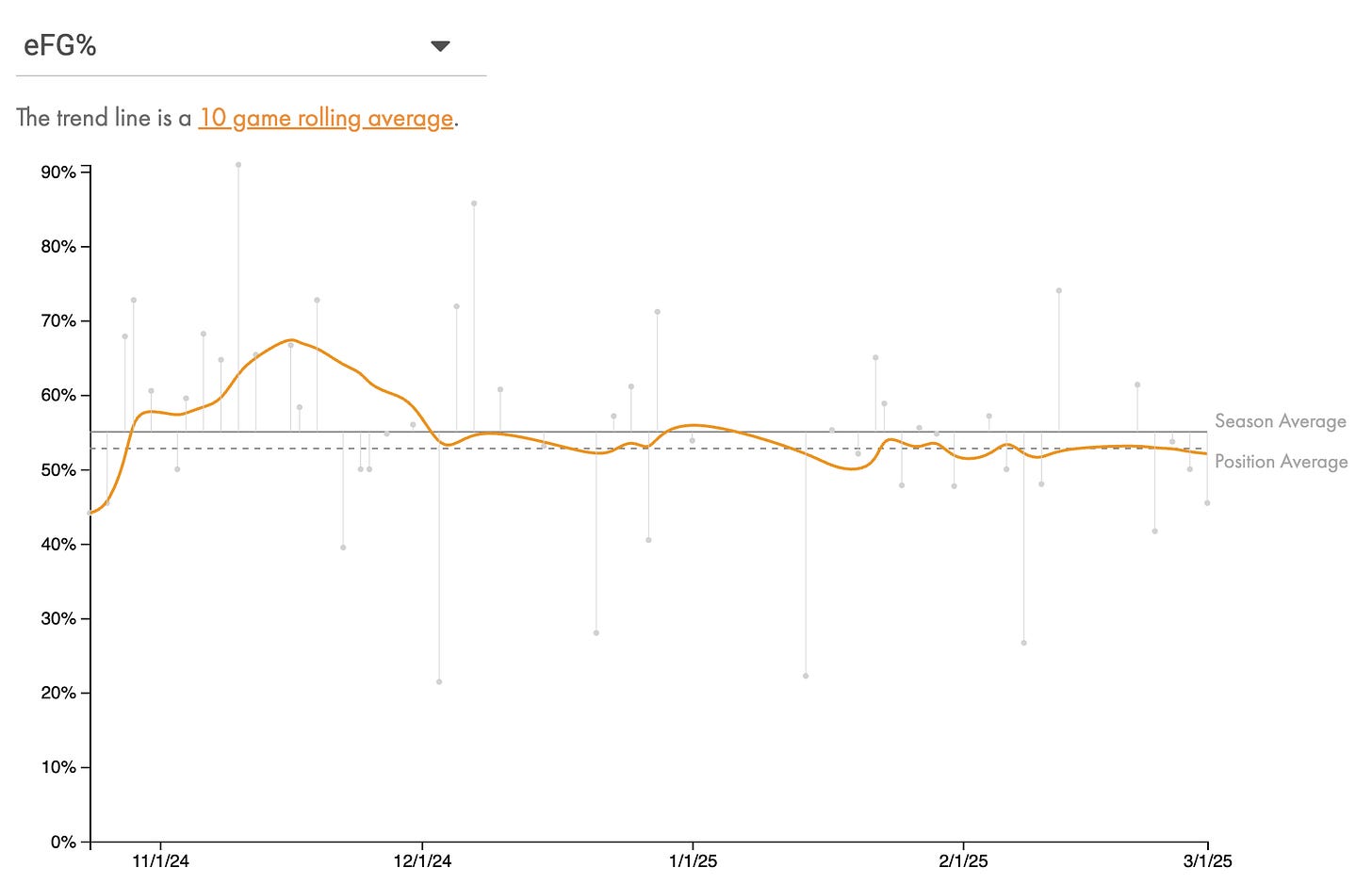Can the Mavericks Contend with Kyrie Irving as Their Only Proven Ball-handler?
And can Anthony Davis help shoulder the playmaking load?
Writing about the Mavericks has been a struggle ever since the trade that completely altered the franchise’s trajectory and pushed it in an entirely different direction.
Even for those disappointed by the decision to move on from Luka Dončić but at least intrigued by the idea of a new "defense wins championships" identity built around size and Anthony Davis’ defensive pedigree, there hasn’t been much to analyze. Outside of a brief three-quarter tease against the Rockets, Davis’ injury has left nothing but hope, forcing us to imagine possibilities rather than watching them play out on the court. Injuries to Anthony Davis, Dereck Lively II, Daniel Gafford, and Caleb Martin, along with P.J. Washington's lingering ankle issues, have shifted the focus from winning it all to just surviving.
For the most part, the Mavericks have done an admirable job of surviving and staying afloat in the Western Conference playoff race. They sit at 10th, but with the standings tightly packed, they are only half a game behind the sixth seed.
But for a team in "win now, only a title can validate the trade" mode, simply staying afloat isn’t enough. A late push and a deep playoff run will be necessary. Kyrie Irving and Anthony Davis will turn 33 and 32 later this month, and with 35-year-old Klay Thompson in the mix, it’s clear this team doesn’t have the luxury of wasting a season. With a limited number of chances to win it all, they can’t afford to let one slip away.
To get there, the Mavericks first need to get healthy. March 6th is the day when, hopefully, positive news on Davis and Lively will come. From there, they’ll have to quickly build a new identity and system in a very short amount of time. But if I circle back to fantasizing and speculation, it’s not difficult to see Jason Kidd and Sean Sweeney building another disruptive defensive team, a new iteration and new era of a huge, defensive juggernaut with Davis at the power forward spot. Then, at least for this season’s iteration, it’s also not hard to see the biggest and most obvious gap—the playmaking void created by Dončić’s departure.
Kyrie Irving stepping into a much bigger role
Swapping Dončić for Davis was a bold gamble on Irving’s ability to be the primary ball-handler and playmaker for a championship team. It’s a role Irving held in his early years in Cleveland, during his two-year stint in Boston, and in his first season in Brooklyn before James Harden and Kevin Durant arrived to form the Big Three. However, his real playoff success came when he played as a secondary ball-handler alongside LeBron James and Dončić.
With Dončić’s injury and eventual departure, Irving has shifted from a secondary role to being the primary scorer and ball-handler this season. He has become the focal point of the offense, carrying the highest usage, drawing the toughest defensive assignments, and taking on the responsibility of creating for others. Irving’s number splits, pre- and post-Christmas (the last day Dončić played in a Mavericks uniform), show the transformation in his role, with a clear uptick in minutes, usage, shot attempts, and overall scoring.
However, taking on a heavier load and trying to fill Dončić’s scoring void came at a cost. Irving’s shooting efficiency, measured by effective field goal percentage (eFG%), along with his three-point shooting accuracy and assist rates, has declined.
The declining assist rate is the most alarming sign, with Irving averaging just 4.1 assists per game since Christmas. Without Davis, he has had to be more aggressive as a scorer, but the Mavericks lack proven options—or enough overall talent—behind him to help carry the playmaking load. Like Irving, both Spencer Dinwiddie and Dante Exum have had to take a step up, if not two, in the ball-handling hierarchy. While both can provide a spark in short stretches, relying on minimum-salary players for extended minutes and a significant role is a recipe for trouble. Naji Marshall is in a similar spot, great as an unexpected relief with his unorthodox driving game but not reliable or consistent enough to lean on regularly. Recent games have shown that neither Exum nor Marshall will be respected as shooters until they prove they can consistently make outside shots in the playoffs. This adds another challenge for Kidd as he tries to juggle between shooting, defense, and playmaking.
Anthony Davis as a playmaking hub and pressure release?
Keep reading with a 7-day free trial
Subscribe to digginbasketball to keep reading this post and get 7 days of free access to the full post archives.











